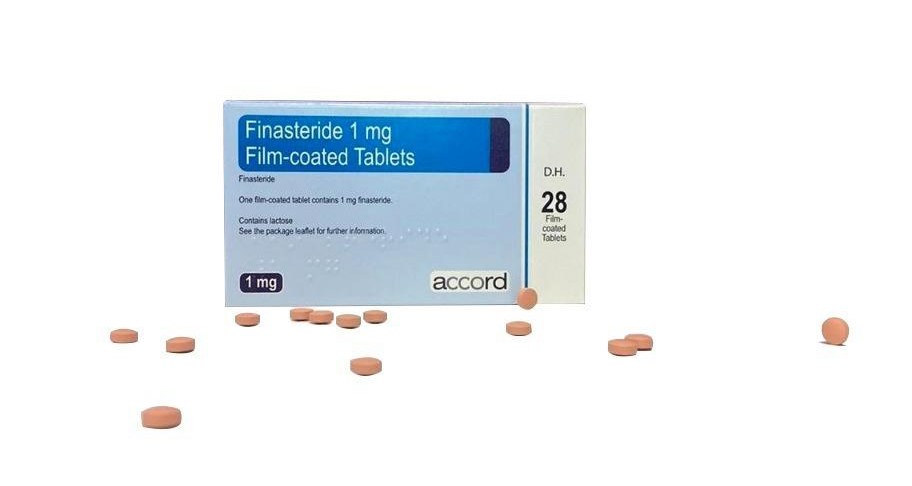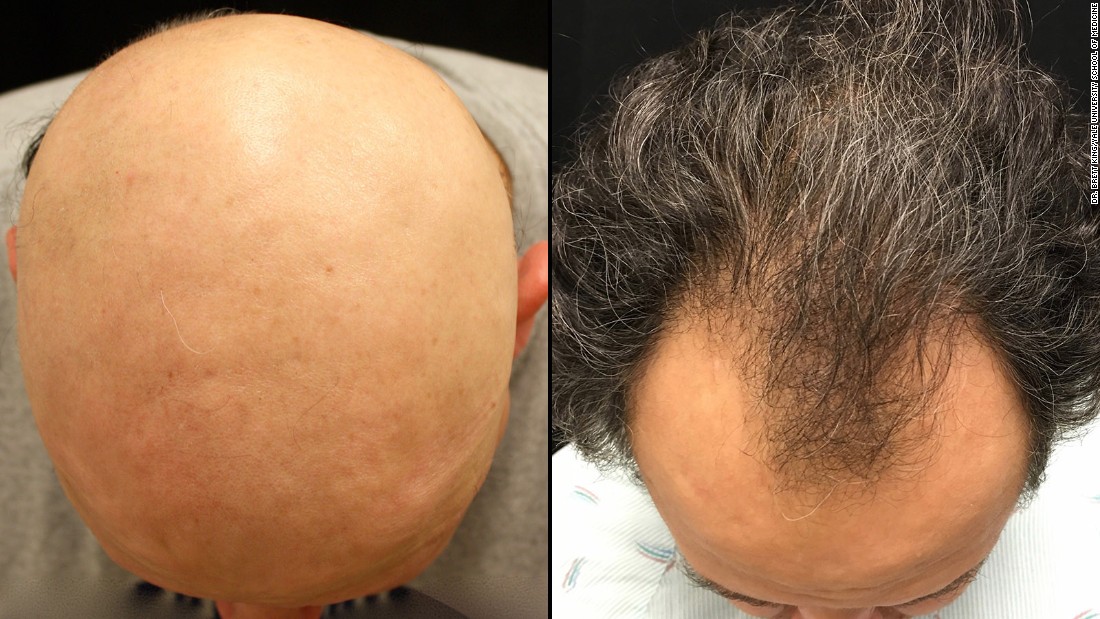Table Of Content

Scientists developed a topical version in 1987 specifically for androgenic alopecia in males and then later for female pattern hair loss (FPHL). Genetics, hormonal changes, inflammation and even certain diseases — including, in some cases, COVID-19 — can trigger temporary or permanent hair loss. And prescription drugs may also trigger excessive and sudden shedding. Chemotherapy drugs often lead to the anagen effluvium type of hair loss. As these drugs kill cancer cells throughout the body, they also can damage healthy cells, including hair matrix cells.
Finasteride, Oral Tablet
A dermatologist is a medical doctor who specializes in treating the skin, hair, and nails. Individuals must answer an online questionnaire indicating whether they have a receding hairline, thinning at the crown, overall hair loss, and more. The table below compares each of the hair loss medications in this article. In another 2017 study, researchers reviewed the effects of dutasteride and finasteride in men with androgenetic alopecia. They found that dutasteride was more effective, but its adverse effects were similar to finasteride.
Men's Health
During hair loss treatment, avoid using products that can harm your hair, like dyes, chemical relaxers or chemical straighteners. Not using these products can help your hair growth treatment work more effectively. Some causes of hair thinning and hair loss aren’t permanent and don’t need treatment. Changes to your body can affect how much hair you’re able to grow and when your hair grows. Once your body adapts to the changes affecting it, your hair will naturally grow back without treatment. After they determine the cause, your provider will learn more about your hair goals, like whether you want it to regrow or not.
Medication for Hair Loss
No matter your age or gender, dealing with hair loss can be frustrating. There are many hair loss products available on the market, which can add to the overwhelm. Additionally, visiting a dermatologist or hair loss specialist can be expensive. She had been prescribed warfarin, an anticoagulation drug, to deal with her clotting issue.
If you take too much, you’re at a higher risk for developing negative reactions. These can include decreased sex drive, trouble getting or keeping an erection, ejaculation disorder, increase in breast size or tenderness, and rash. Dosage for people younger than 18 years has not been established. Finasteride works by decreasing the amount of the hormone dihydrotestosterone (DHT) in your body. Antiandrogens can produce side effects, including irregular menstrual periods and drowsiness.

Making sure to include enough protein, iron, B vitamins — especially biotin — and zinc could help prevent some hair shedding if malnutrition is a factor, she added. “It’s extremely common for people after bariatric surgery to lose quite a bit of hair. It’s one of the biggest complaints I hear and people are worried they’re going to go bald,” Kraftson said. Gout medications like allopurinol (Zyloprim and Lopurin) have been reported to cause hair loss. Medications that prevent seizures, like valproic acid (Depakote) and trimethadione (Tridione), can lead to hair loss in some people. High doses of vitamin A and medications derived from it can cause hair loss.
'Monumental' breakthrough for thousands of alopecia sufferers as watchdogs approve drug that REVERSES hair los - Daily Mail
'Monumental' breakthrough for thousands of alopecia sufferers as watchdogs approve drug that REVERSES hair los.
Posted: Wed, 21 Feb 2024 08:00:00 GMT [source]
Weight loss drugs
Before any type of treatment begins, a healthcare provider will perform a physical exam, get your complete medical and family medical history, and offer tests if necessary. This will help them learn more about why you have hair loss or thinning hair. The type of hair loss, as well as your overall health and desires, determine which hair replacement procedures are most suitable. A healthcare provider or dermatologist can help you navigate treatment for hair loss or thinning hair.
During the anagen phase, which lasts for two to seven years, the hair grows. During the telogen phase, which lasts about three months, the hair rests. At the end of the telogen phase, the hair falls out and is replaced by new hair. Corticosteroid medications are used to treat people with alopecia areata, lichen planopilaris, and discoid lupus erythematosus. These immune system suppressors can counteract the effects of an autoimmune disease, allowing hair to grow.
A person can complete an online questionnaire to determine the best plan for them. If hair loss is due to a health condition such as alopecia areata, polycystic ovary syndrome, or scalp infection, a person should first seek treatment for this. During a hair transplant procedure, a dermatologist or cosmetic surgeon removes hair from a part of the head that has hair and transplants it to a bald spot. Each patch of hair has one to several hairs (micrografts and minigrafts). Sometimes a larger strip of skin containing multiple hair groupings is taken.
Promising New Hair Loss Treatment Using MicroRNA May Soon Be Available - Healthline
Promising New Hair Loss Treatment Using MicroRNA May Soon Be Available.
Posted: Tue, 27 Jun 2023 07:00:00 GMT [source]
If your hair loss is due to a medical condition, the cost of a wig might be covered by insurance. Our experts continually monitor the health and wellness space, and we update our articles when new information becomes available. Massick agreed that it’s important to discuss your diet with your doctor.
If a fungal infection called tinea capitis, or scalp ringworm, is the cause of hair loss, a dermatologist prescribes an antifungal medication to be taken by mouth daily. Often, it takes one or two months before you can see results, and treatment usually lasts for several months in order to fully eliminate the fungus. If treatment begins soon after symptoms appear, most people see excellent hair regrowth. Some types of hair loss are caused by an autoimmune disease and are treated differently than hormonally induced hair loss. With an autoimmune condition, the body’s immune system attacks healthy organs and tissues, including the skin. It wasn’t until 2022 that the FDA officially greenlighted one of these drugs—baricitinib, a.k.a. Olumiant—specifically for adults with alopecia.
See your doctor if you are distressed by persistent hair loss in you or your child and want to pursue treatment. For women who are experiencing a receding hairline (frontal fibrosing alopecia), talk with your doctor about early treatment to avoid significant permanent baldness. In the type of patchy hair loss known as alopecia areata, hair loss occurs suddenly and usually starts with one or more circular bald patches that may overlap. Before pursuing hair loss treatment, talk with your doctor about the cause of your hair loss and treatment options. A new drug ritlecitinib, sold under the brand name, Litfulo was recently approved by the FDA to treat severe alopecia areata.
A 2013 review looked at spironolactone as a medication for female pattern hair loss. Research showed it to be an effective treatment for reducing hair loss, especially when combined with minoxidil. Also, a 2023 review showed that topical spironolactone was an effective treatment for androgenic alopecia and was safe for both men and women. Alopecia areata is a disorder in which the immune system attacks hair follicles, causing serious hair loss. This autoimmune disease often develops in young people, typically between their teens and 30s, according to the National Institutes of Health. It affects about 2% of the world’s population, and, in the US alone, approximately 6.7 million people, or one in every 500 to 1,000 with alopecia areata.
Hair loss, or alopecia, is a condition both men and women may experience during their lives as a result of health-related issues, genetics, and medications. People who notice a significant increase in hair loss when taking a medication should contact a doctor. The doctor may be able to lower the dosage of the medication or prescribe an alternative that is less likely to cause hair loss. Colchicine (Colcrys), which doctors use to treat gout, can also sometimes cause the loss of hairs in the growing stage. Other early signs of alopecia include a noticeable increase in the number of shed hairs in hairbrushes and shower drains and on pillows. The severity of drug-induced hair loss depends on the type of drug and dosage, as well as your sensitivity to that drug.
Many different factors contribute to this condition, including certain medications. Doctors refer to alopecia that occurs as a side effect of medication as drug-induced alopecia. Many types of hair loss are treated with a combination of medications for optimal results.
Remember that if you’re going through a tough health situation, you have every right to be proud of how you’re fighting it. It’s entirely up to you to decide the look you’re most comfortable with. Pregnant women and women who plan to become pregnant in the near future should not handle this drug.

